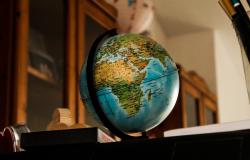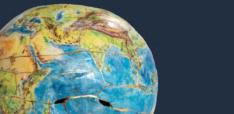Who are ‘we’? Seeking African solutions to crises and funding gaps

At the recent AU Humanitarian Summit, finding African solutions to African problems was an important theme. What will it take to walk the talk?
In Ethiopia, Kenya, and Somalia now, it’s likely that a person is dying of hunger every 48 seconds. How many years of neglect, denial, and short-sighted decisions by policy makers around the world did it take to land us here? How quickly can we turn things around? And—a fundamental question—who are “we”?
Let’s start with the climate: weather disruptions for year after year have reduced millions of farmers to destitution. Yet African countries have contributed less than 4 percent of the global greenhouse gases that are causing the harm, so the “we” that need to act and act quickly—to slow emissions and to mitigate loss and damage—include the wealthy industrialized nations of the world that bear responsibility for the climate crisis.
“We” includes African governments, of course. They are the duty-bearers for the well-being of their people. Far too much of their budgets and attention are focused on security, and far too little on agriculture, health care, and other crucial social spending.
And “we” includes local and national organizations. The long-established habit of sidelining and underfunding grassroots and national NGOs in disaster-affected countries has rendered the humanitarian system far less effective than it could be. Local and national organizations have their fingers on the pulse of every emergency; we understand the geography, the languages and cultures, and the political context in which it is unfolding. We understand which solutions will work and which will not. Our knowledge, presence, and leadership are essential to humanitarian response, yet—consigned to project-based funding and rarely able to secure funding for overhead expenses—we are always on the brink of disaster ourselves.
When the World Humanitarian Summit of 2016 ushered in the Charter for Change and Grand Bargain, local and national NGOs in Africa and around the world thought that if we had patience, our hopes of fulfilling our potential would become reality. But six years later, international actors are still struggling to shift power and share resources; although progressive change is underway, the pace is glacial.
NGOs have to stop dreaming and find ways to take matters into our own hands. Echoing the theme of the Summit, that means exploring African sources of funding to solve Africa’s crises.
- The private sector is a largely untapped resource. The ability of companies to provide goods, services, and logistical support in emergencies is potentially vast. More banks and other financial institutions, for example, could be mobilized at times of crisis to ensure people have quick access to cash, and businesses with vehicles and logistical know-how could be helping us move goods to where they need to go.
- Governments could be gathering resources from different sources and creating pooled funds—administered by independent institutions—to be distributed not to INGOs, like UN pooled funding, but to local and national NGOs and local governments.
- There is tremendous wealth on the African continent, yet African philanthropy is underdeveloped. When it comes to funding aid, development, and peace efforts, African philanthropic institutions could be standing side by side with Gates, Ford, and other foundations based in North America and Europe.
- Local and national NGOs can generate incomes through their own business enterprises. Developing a business arm could be the fastest and most reliable way for an organization to break free of the constraints imposed by project-based funding. NGOs can offer conference centers and hostels, financial and consultancy services that draw on their expertise, and a host of other income-generating goods and services. The profits could be used for whatever is needed most urgently, with the NGOs determining the priorities.
If African NGOs are going to survive, thrive, and meet the humanitarian challenges before us, we can’t rely solely on traditional sources of assistance. They have not been responsive enough to our needs. And their own resources are always in doubt: much of the world’s foreign aid relies on media coverage to generate public support, and the media is distractable—always looking for the next shiny object that will fascinate its audiences. The food crises in East and West Africa are not, apparently, very shiny, so the funding has fallen far short of what’s needed to avert hunger catastrophes.
To the African aid communities—let us come together to create an effective approach to managing emergencies, addressing poverty, building peace, and strengthening local leadership. An approach that doesn’t rely on decades-old systems that have proven fickle. Let us wake up from our daydreams and fully take charge of the continent’s future.
Eyokia Donna Juliet is the Project Manager for Disaster Preparedness and Response for Community Empowerment for Rural Development (CEFORD) in Uganda.
This first appeared on From Poverty to Power.
Photo by Julian Vera Film


